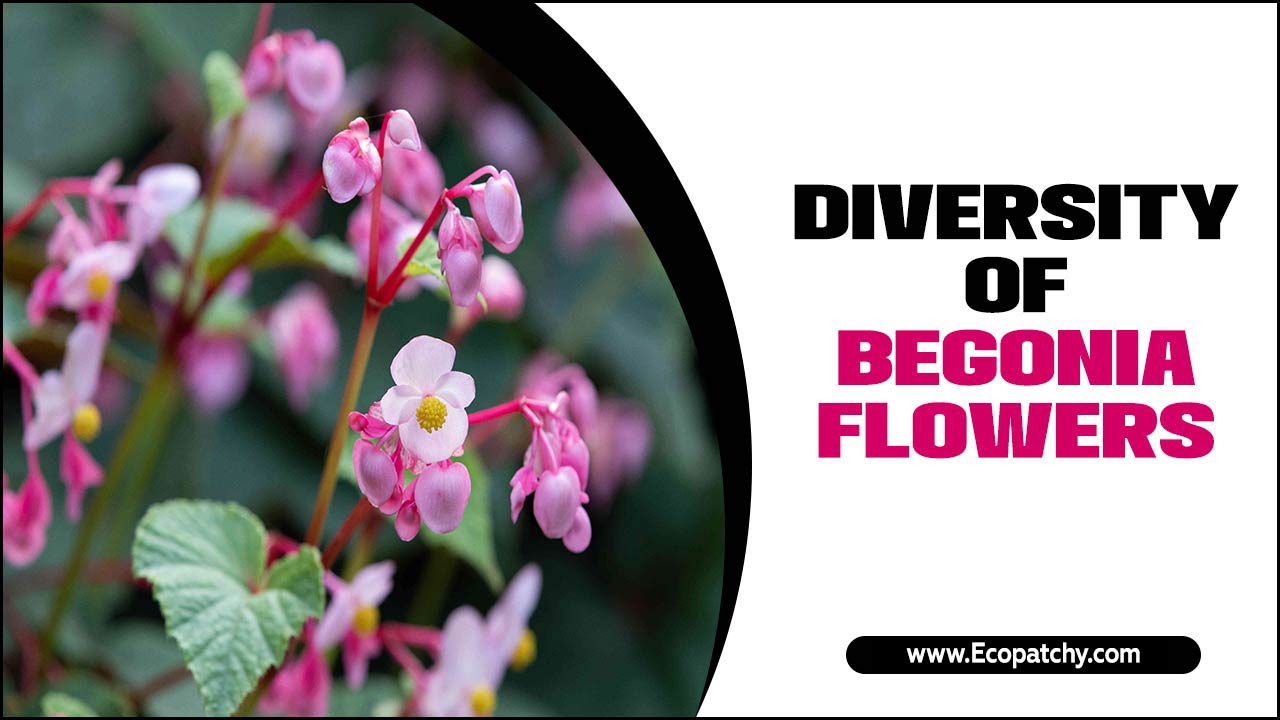Allium bulbs and ornamental onions are popular among gardeners for their beautiful and unique blooms. While most gardeners are familiar with the traditional spring planting time for bulbs, many may wonder if it is possible to plant allium bulbs later.
After all, life can get busy, and gardening tasks may fall by the wayside. Here we will discuss the ideal planting time and factors impacting successful growth. We will also provide 5 tips for how late can you plant allium bulbs, as well as common mistakes to avoid. Whether you’re a seasoned gardener or just starting, this guide will provide you with everything you need to know about planting allium bulbs at any time of the year.
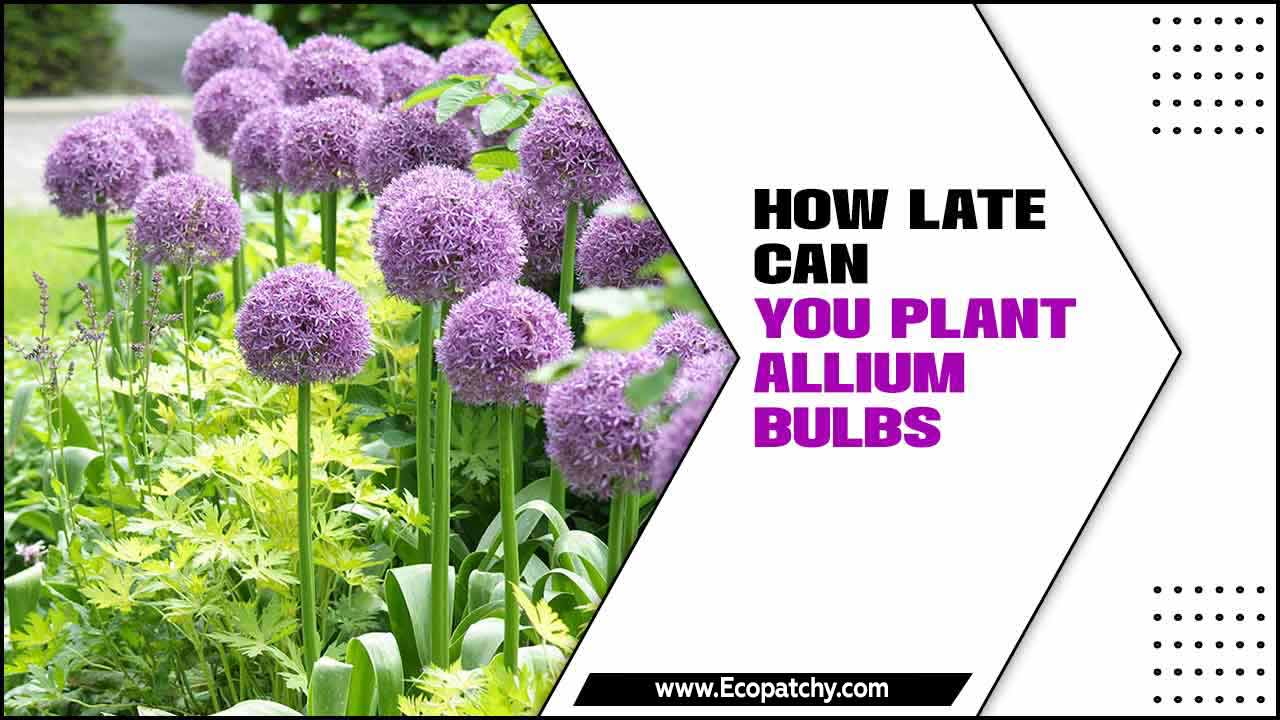
Understanding Allium Bulbs
Allium bulbs, part of the onion family, produce unique spherical blooms with purple flowers that add a touch of elegance to perennial gardens. Planting allium bulbs in early spring is a good idea for the best results. These ornamental allium bulbs come in different varieties, such as the popular Purple Sensation Allium and the towering Allium giganteum.
These spring bulbs can create a naturalized look in garden beds with their white blooms and tiny star-like flowers. To ensure healthy plants, it’s important to provide good drainage and plant them in an area with enough sunlight. Understanding the genus Allium and its various species is key to achieving the best flowering results next spring.
The Importance Of Allium Flowers In Gardening
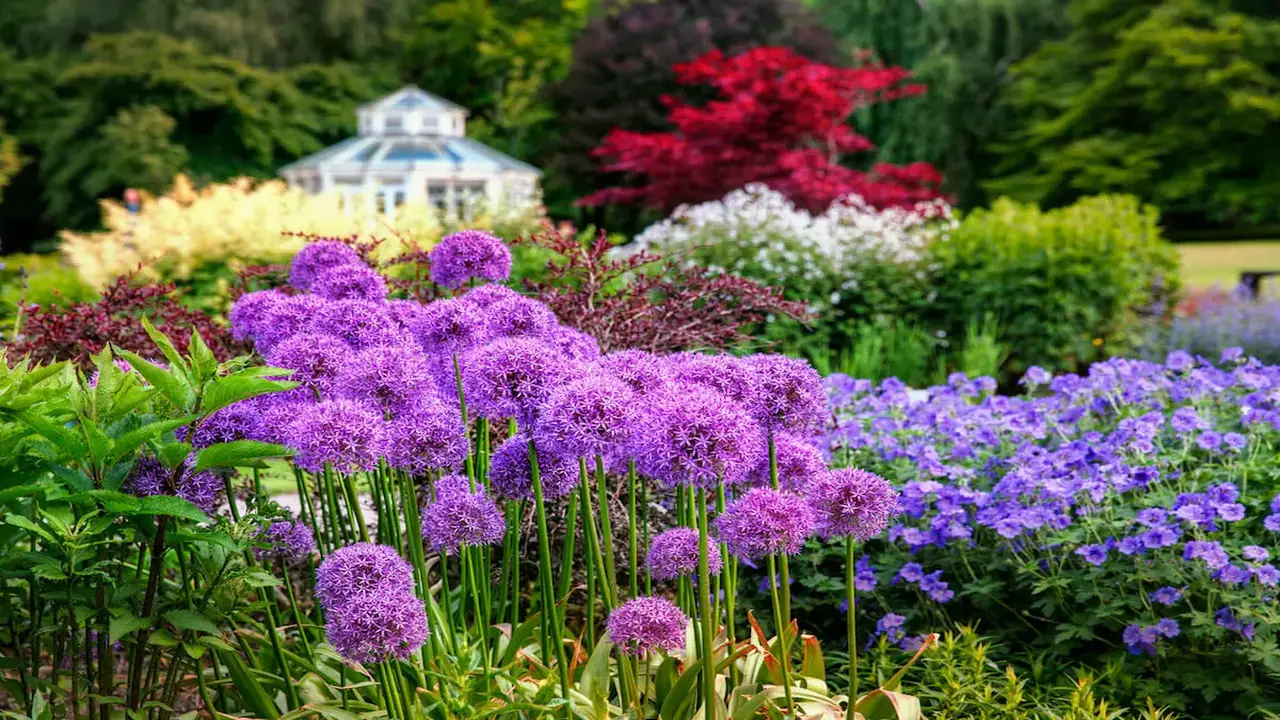
Allium flowers play a crucial role in gardening for several reasons. Firstly, these flowers attract important pollinators like bees and butterflies, helping to support the overall health and biodiversity of the garden. Additionally, allium flowers make excellent cut flowers for floral arrangements, with their unique flower heads adding a touch of elegance and drama.
With numerous varieties and shades, allium flowers offer a wide range of options for creating stunning displays in the garden. Their tall height and textured blooms make them a great addition to flower gardens, especially when planted en masse. Overall, these ornamental allium bulbs provide a beautiful and impactful element to any garden space.
The Role Of Timing In Successful Allium Bulb Planting
Timing plays a crucial role in the successful planting of allium bulbs. Late summer or early fall is the best time to plant these bulbs. Allium bulbs need a dormant state during winter to prepare for the upcoming growth and flowering season.
Planting allium bulbs too late in the season may result in poor flowering, so it’s important to plant them before the first frost. Additionally, allium bulbs require a full sun location to thrive and achieve maximum growth. Planting allium bulbs at the right time ensures healthy plants with vibrant flower heads that add great to any garden space.
5 Tips For How Late Can You Plant Allium Bulbs
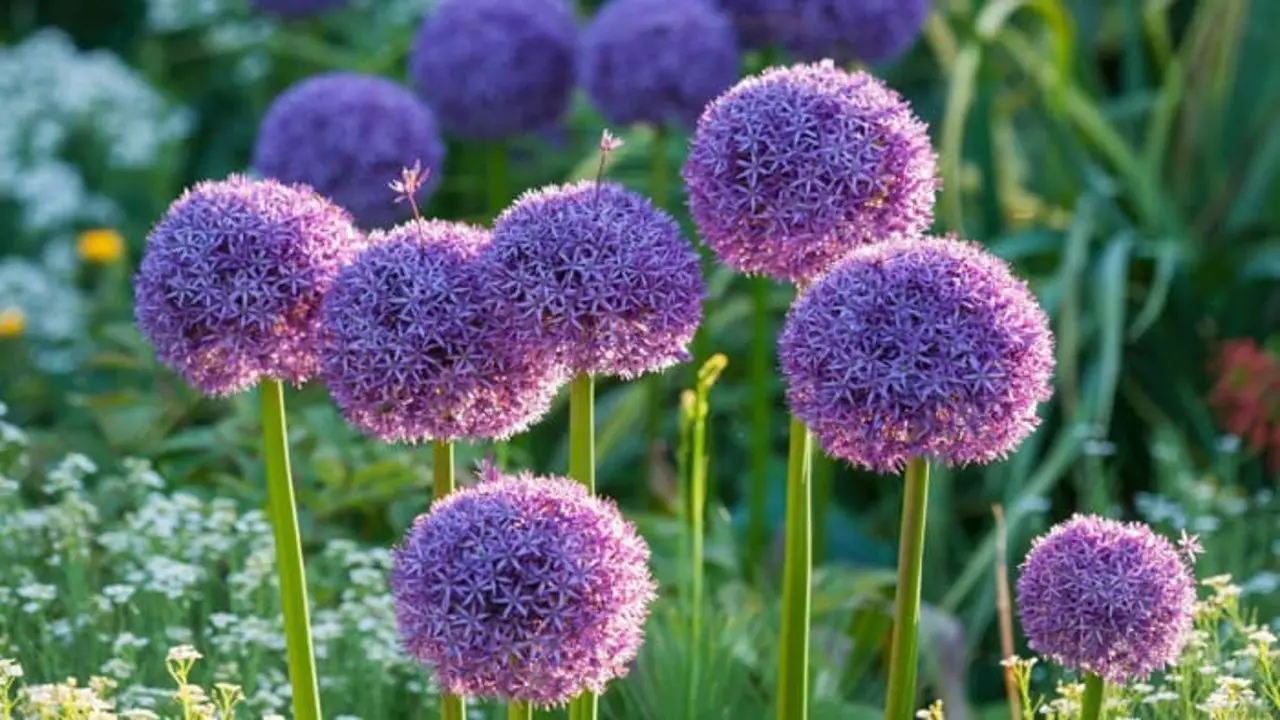
Regarding the ideal planting time for allium bulbs, there are a few key factors to consider. Generally, allium bulbs are typically planted in the fall for spring blooming. However, the bulb’s size and the plant’s height can affect the ideal planting time. When planting allium bulbs, timing is key. While the ideal time to plant these bulbs is in the fall, there are still options for those who may have missed the window. Here are five tips for how late can you plant allium bulbs:
Check Your Growing Zone
To ensure successful growth and blooming of allium bulbs, it’s important to check your growing zone. Each USDA hardiness zone has recommended planting times and climate considerations for allium bulbs. The length of the growing season in your area should also be considered.
Allium bulbs thrive in warmer climates with mild winters. To get specific recommendations for your growing zone, it’s a good idea to consult a local garden center. They can guide you on the best planting times and varieties of allium bulbs that will thrive in your area. You can ensure the best flowering results for your allium bulbs by checking your growing zone.
Plant Bulbs In Late Fall Or Early Winter
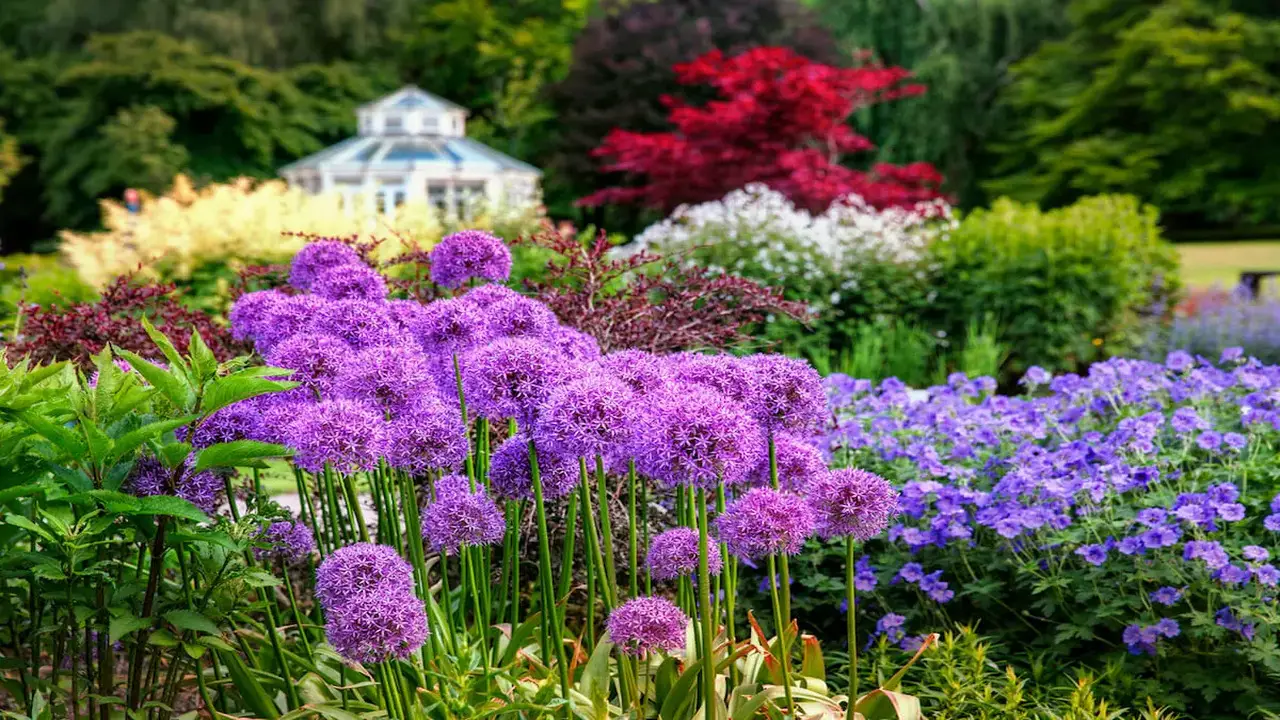
Late fall or early winter is the perfect time to plant allium bulbs, ensuring a beautiful display of blooms in the upcoming spring. Planting the bulbs before the ground freezes gives them enough time to establish their roots and prepare for the next season.
This also allows the bulbs to receive the necessary chilling period, which is crucial for their growth and development. Choose a sunny spot in your garden for planting the allium bulbs, as they thrive in well-drained soil with ample sunlight. Proper planting during late fall or early winter allows you to enjoy the vibrant flower heads of different allium varieties in your garden next spring.
Plant When Soil Temperature Is Cool
Planting allium bulbs is best when the soil temperature drops in late fall or early winter. This is because cooler soil temperatures promote healthy root growth and bulb development, setting the stage for beautiful blooms in the spring.
Planting allium bulbs when the soil is cool can also prevent premature sprouting. It’s important to ensure the bulbs are in the ground before the ground freezes completely. Also, choosing a well-drained location is crucial to avoid waterlogged soil during winter. So, remember to plant your allium bulbs when the soil temperature is cool for the best results.
Amend Soil With Compost
To ensure allium bulbs’ optimal growth and development, it is essential to amend the soil with compost. Adding compost before planting allium bulbs improves soil fertility and drainage, providing the necessary nutrients for bulb growth.
Compost also helps retain moisture and improves soil structure, creating a favorable environment for the bulbs to thrive. For best results, mix the compost evenly into the planting hole. When allium bulbs are planted in well-amended soil, they are more likely to flourish and produce beautiful flower heads. So, incorporating compost is a good idea to enhance the health and vitality of your allium varieties.
Plant Bulbs In Full Sun Or Partial Shade
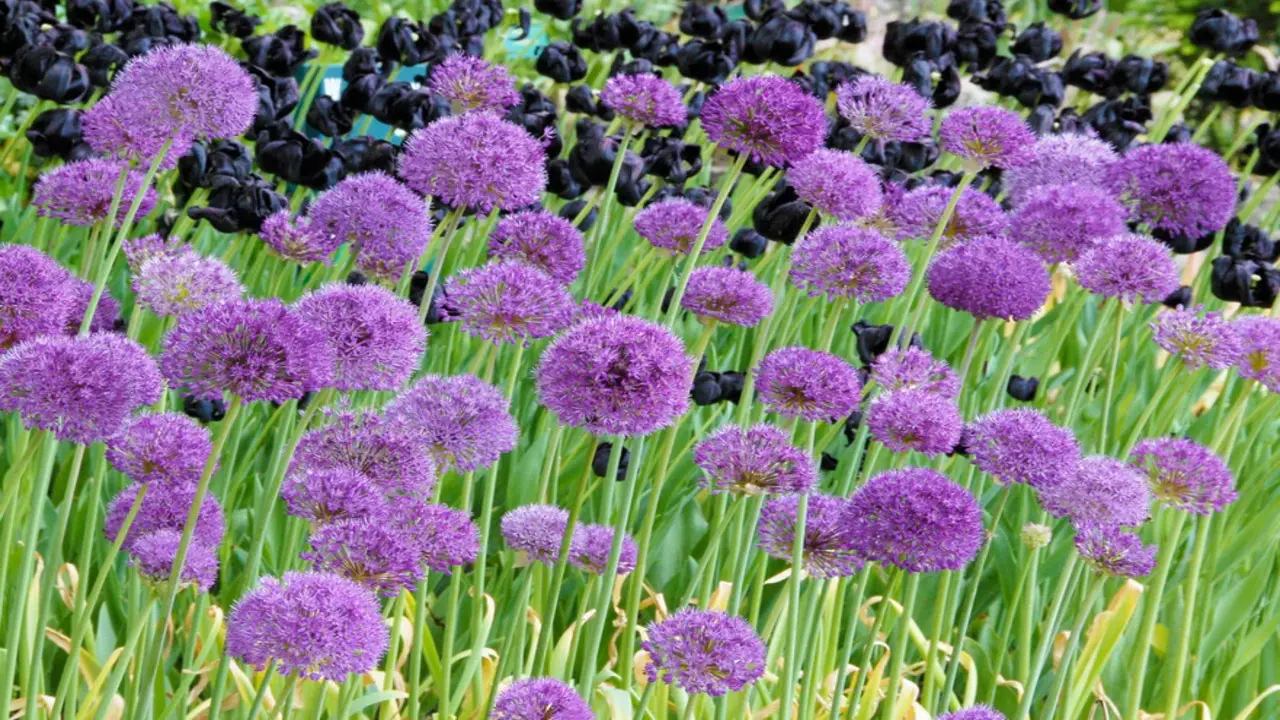
When planting allium bulbs, it’s important to consider the amount of sunlight they will receive. Alliums thrive in full sun or partial shade, so choosing a location that provides at least six hours of direct sunlight daily is best. This will ensure the bulbs receive enough light to grow and bloom properly.
If you’re planting in an area with more shade, select allium varieties tolerant of lower light conditions. Planting your allium bulbs in the right amount of sunlight can help them flourish and add a burst of color to your garden.
Tips For Planting Allium Bulbs Late In The Season
Planting allium bulbs late in the season is possible, but taking a few extra steps is important to ensure their success. Late-planted allium bulbs may not bloom as vigorously or on schedule compared to those planted earlier in the season. However, they can still produce beautiful flowers for you to enjoy with proper care and attention. Here are some tips for planting allium bulbs late in the season:
- Choose The Right Variety: Some allium varieties are more forgiving regarding late planting. Look for varieties that have a shorter growing season or are known to tolerate colder temperatures.
- Prepare The Soil: Before planting, make sure the soil is well-drained and amended with organic matter. This will help give the bulbs the nutrients they need to establish roots and grow.
- Plant At The Right Depth: Allium bulbs should be planted at a depth that is three times their size. This will help protect them from freezing temperatures and ensure they have enough room to grow.
- Water Thoroughly: After planting, water the bulbs thoroughly to help settle the soil and provide moisture for root development. Keep the soil evenly moist throughout the growing season, but avoid overwatering as this can lead to rot.
- Mulch For Protection: Applying a layer of mulch around the base of the plants can help insulate them from extreme temperature fluctuations and prevent frost damage.
Factors To Consider When Planting Allium Bulbs Late
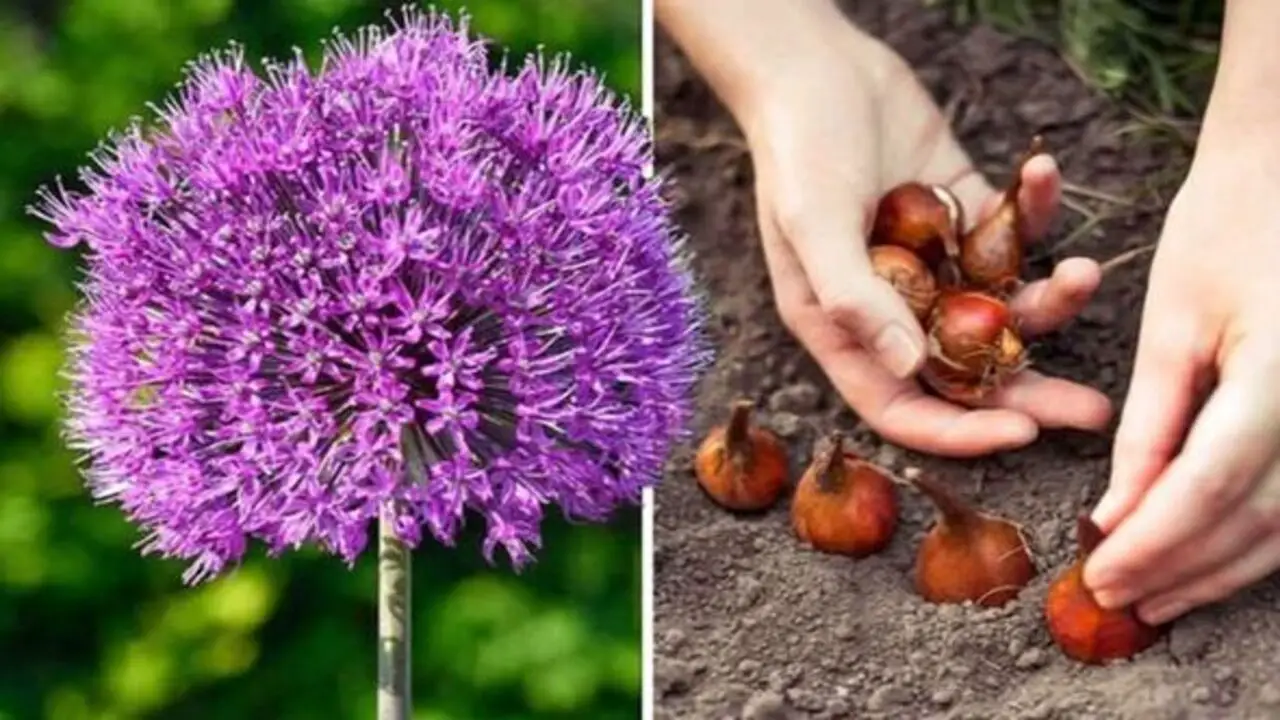
When planting allium bulbs late, a few factors must be considered to ensure successful growth. First, choosing the right variety of allium suitable for late planting is important. Some varieties are more tolerant of late planting than others, so do your research.
Additionally, pay attention to the weather conditions in your area. Allium bulbs prefer cool temperatures and well-drained soil, so planting them when the weather is still mild but not too cold is ideal. Lastly, properly prepare the soil before planting and provide adequate water and sunlight for the bulbs to thrive. Considering these factors, you can increase the chances of your late-planted allium bulbs flourishing into beautiful blooms.
Common Mistakes To Avoid When Planting Allium Bulbs Late
Planting allium bulbs late in the season can be tricky, but with careful planning and attention to detail, you can still enjoy beautiful blooms. By avoiding these common mistakes and following these tips, you can increase your chances of success when planting allium bulbs late in the season. However, there are a few common mistakes to avoid when planting allium bulbs late:
- Neglecting Proper Soil Preparation: Allium bulbs prefer well-draining soil, so make sure to amend your soil with organic matter and ensure good drainage before planting.
- Planting Too Deep Or Too Shallow: It’s important to plant allium bulbs at the correct depth. Plant them about 2-3 times their height, with the pointed end facing up.
- Failing To Provide Adequate Water: Even though you’re planting late in the season, providing your allium bulbs with enough water is crucial. Keep the soil moist but not soggy until the ground freezes.
- Overlooking Fertilization: Allium bulbs benefit from a balanced fertilizer applied at planting time. This will help promote healthy root development and vigorous growth.
Maintaining Allium Bulbs Post-Planting
Once you have planted your allium bulbs, it is important to properly care for them to ensure their continued growth and health. By following these tips, you can ensure that your allium bulbs thrive and continue to bring beauty to your garden year after year. Here are some tips for maintaining allium bulbs post-planting:
- Watering: Allium bulbs require regular watering, especially during dry periods. Keep the soil evenly moist but not waterlogged to prevent the rotting of the bulbs.
- Fertilizing: Apply a balanced bulb fertilizer in early spring when new growth appears. This will provide the necessary nutrients for healthy bulb development and flowering.
- Mulching: Apply a layer of organic mulch around the base of the plants to help retain moisture, suppress weeds, and insulate the bulbs during winter.
- Deadheading: Once your alliums have finished flowering, remove the spent blooms to prevent seed production and encourage bulb strength for next year’s growth.
- Winter Protection: In colder regions, provide winter protection by applying a layer of mulch or straw over the planting area to insulate the bulbs from freezing temperatures.
Alternatives To Planting Allium Bulbs Late
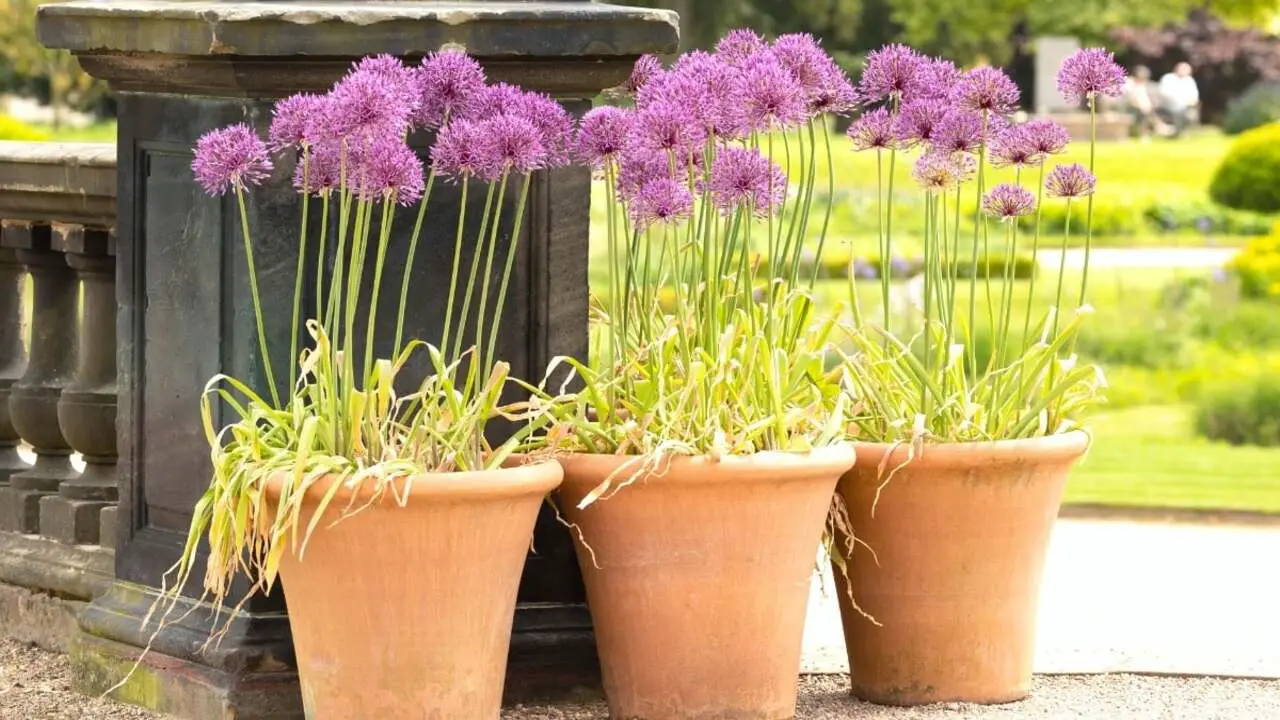
If you missed the ideal planting time for allium bulbs. While it’s best to plant allium bulbs at the recommended time, these alternatives can help salvage your gardening plans if you are running late. Remember to give them proper care and attention throughout their growth process. There are a few alternatives to planting them late that you can consider:
- Pre-Chilled Bulbs: If you can find pre-chilled allium bulbs, these have already been exposed to cold temperatures and may have a better chance of blooming if planted late in the season.
- Container Planting: Instead of planting the bulbs directly in the ground, you can plant them in containers. This will allow you to control the temperature and provide them with optimal growing conditions.
- Store For Next Year: If all else fails, you can always store the bulbs in a cool, dry place and plant them next year during the recommended planting time.
Conclusion
The ideal planting time for allium bulbs is in late fall or early winter when the soil temperature is cool. It is important to check your growing zone and amend the soil with compost for optimal growth. While planting allium bulbs late in the season is possible, there are factors to consider, such as the availability of healthy bulbs and the risk of frost damage.
Maintaining the allium bulbs post-planting is essential by providing adequate water and protecting them from extreme weather conditions. However, if planting allium bulbs late is not feasible, alternatives exist, such as purchasing pre-grown allium plants. Remember to avoid common mistakes, follow the tips provided, and enjoy the beautiful blooms of allium flowers in your garden. So it is essential to know how late can you plant allium bulbs.
Frequently Asked Questions
1.What Is The Latest Date To Plant Allium Bulbs?
Ans: The latest date to plant allium bulbs depends on your location and climate. Ideally, they should be planted in the fall before the ground freezes. If you miss this window, you can plant them in early spring, but they may not bloom until the following season.
2.Can I Plant Allium Bulbs Anytime?
Ans: Allium bulbs are typically planted in the fall, but if you miss the window, you can still plant them in the spring. However, late planting may result in delayed blooming. It’s important to research the optimal planting time for your specific allium variety.
3.How Late Can Allium Bulbs Be Planted?
Ans: Allium bulbs can be planted in the fall, before the first frost, or early spring. However, planting in spring may result in delayed blooming or smaller flowers. It’s best to plant allium bulbs as soon as possible for them to establish before the growing season ends.
4.Do You Plant Allium Bulbs Point Up Or Down?
Ans: Planting allium bulbs pointy end up is crucial for their proper growth. This ensures that the roots grow downwards and the stem grows upwards. Planting them upside down can lead to stunted or malformed growth. Remember to plant them at the correct depth, usually around three times the bulb’s diameter.
5.Is There A Specific Temperature Range That Is Ideal For Planting Allium Bulbs?
Ans: The ideal temperature range for planting allium bulbs is between 50°F to 68°F (10°C to 20°C). Allium bulbs should be planted in soil that has reached a temperature of at least 60°F (15°C). Planting in too cold soil can result in poor growth and development, so timing and conditions are crucial.






